
Tel Aviv: The Vibrant Heart of Israel
Tel Aviv, often referred to as the 'White City,' is a bustling metropolis along the Mediterranean coast. It is famous for its Bauhaus architecture, vibrant nightlife, and beautiful beaches. The city's unique blend of modernity and history makes it a captivating destination for travelers. Stroll down Rothschild Boulevard to experience Tel Aviv's rich architectural heritage and enjoy the lively atmosphere of its many cafes and restaurants. The Carmel Market, one of the city's largest and most famous markets, offers an authentic taste of Israeli culture with its colorful stalls and diverse street food. For art enthusiasts, the Tel Aviv Museum of Art showcases an impressive collection of both Israeli and international works. Tel Aviv's coastline stretches for miles, featuring some of the best beaches in the country. From the bustling Gordon Beach to the more relaxed Hilton Beach, there is a spot for every type of beachgoer. The city's port area, Namal Tel Aviv, has been transformed into a lively entertainment hub with shops, restaurants, and an energetic nightlife scene. Jaffa, the ancient port city located just south of Tel Aviv, is steeped in history and offers a more traditional contrast to the modern city. Wander through its narrow alleys, visit the Jaffa Flea Market, and enjoy stunning views of the Mediterranean from the Jaffa Promenade. Whether you are interested in history, culture, or simply soaking up the sun, Tel Aviv has something to offer everyone. Its dynamic energy, welcoming locals, and diverse attractions make it a must-visit destination.
Local tips in Tel Aviv
- Visit the Carmel Market early in the morning to avoid the crowds and get the freshest produce.
- Use the Tel-O-Fun bike-sharing service to explore the city at your own pace.
- Check out local events and festivals, especially during the summer when the city is buzzing with activities.
- Wear comfortable shoes as Tel Aviv is best explored on foot, and many streets are pedestrian-friendly.
- Stay hydrated and use sunscreen, especially during the hot summer months.
- Remember that many places close early on Fridays and remain closed on Saturdays for Shabbat.
Neighbourhoods in Tel Aviv
Tel Aviv: The Vibrant Heart of Israel
Tel Aviv, often referred to as the 'White City,' is a bustling metropolis along the Mediterranean coast. It is famous for its Bauhaus architecture, vibrant nightlife, and beautiful beaches. The city's unique blend of modernity and history makes it a captivating destination for travelers. Stroll down Rothschild Boulevard to experience Tel Aviv's rich architectural heritage and enjoy the lively atmosphere of its many cafes and restaurants. The Carmel Market, one of the city's largest and most famous markets, offers an authentic taste of Israeli culture with its colorful stalls and diverse street food. For art enthusiasts, the Tel Aviv Museum of Art showcases an impressive collection of both Israeli and international works. Tel Aviv's coastline stretches for miles, featuring some of the best beaches in the country. From the bustling Gordon Beach to the more relaxed Hilton Beach, there is a spot for every type of beachgoer. The city's port area, Namal Tel Aviv, has been transformed into a lively entertainment hub with shops, restaurants, and an energetic nightlife scene. Jaffa, the ancient port city located just south of Tel Aviv, is steeped in history and offers a more traditional contrast to the modern city. Wander through its narrow alleys, visit the Jaffa Flea Market, and enjoy stunning views of the Mediterranean from the Jaffa Promenade. Whether you are interested in history, culture, or simply soaking up the sun, Tel Aviv has something to offer everyone. Its dynamic energy, welcoming locals, and diverse attractions make it a must-visit destination.
When is the best time to go to Tel Aviv?
Iconic landmarks you can’t miss
The Clock Tower
Discover the rich history and striking architecture of The Clock Tower, a must-visit landmark in the heart of Tel Aviv-Yafo.
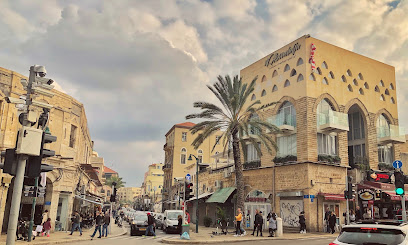
Park HaTachana
Explore Park HaTachana, Tel Aviv's vibrant historic landmark, where culture, cuisine, and charm come together in a unique blend of past and present.
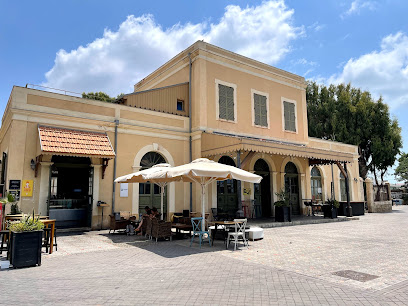
Carmel Market
Discover the vibrant flavors and rich culture of Carmel Market, Tel Aviv's bustling marketplace filled with fresh produce, local delicacies, and artisan crafts.
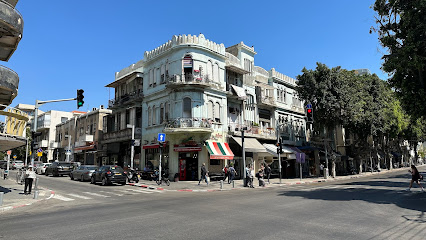
HaBima Square
Discover the vibrant culture and serene gardens of HaBima Square in the heart of Tel Aviv, where art meets nature in a lively urban setting.
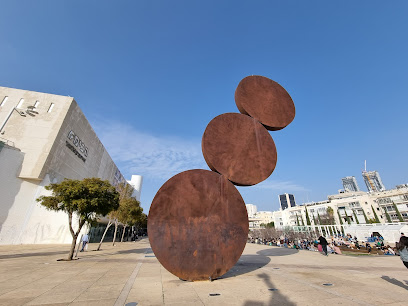
נמל יפו
Discover the vibrant coastal charm of Nemal Yafo in Tel Aviv-Yafo, where scenic views, rich culture, and culinary delights await every tourist.
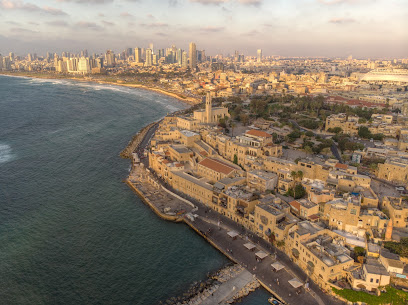
Tel Aviv Port
Experience the lively atmosphere of Tel Aviv Port, a cultural and culinary hub by the Mediterranean, perfect for relaxation and exploration in the heart of the city.
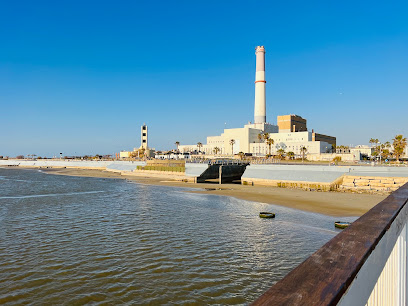
Old Jaffa
Explore Old Jaffa: A Historical Jewel of Tel Aviv with Art, Culture, and Stunning Coastline Views.
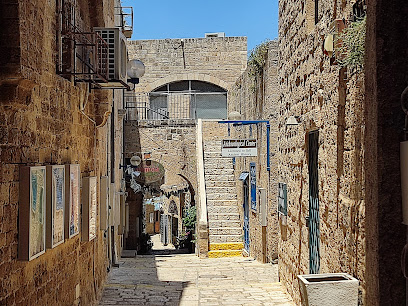
Ariel Sharon Park
Explore Ariel Sharon Park: A vast green oasis in Tel Aviv, perfect for nature lovers and families seeking adventure in a tranquil setting.
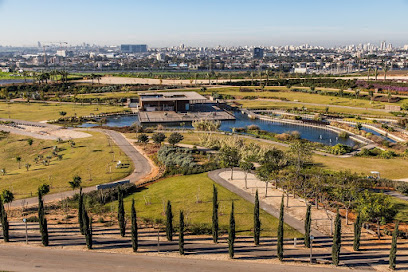
Midron Yaffo Park
Experience the beauty of nature and stunning coastal views at Midron Yaffo Park, an urban oasis in Tel Aviv-Yafo for relaxation and exploration.
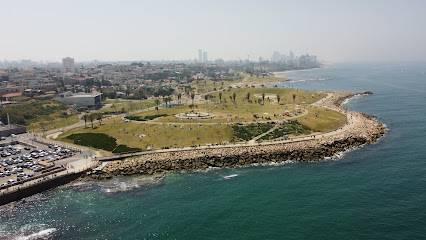
Charles Clore Park
Experience the natural beauty and vibrant culture of Charles Clore Park, a serene urban retreat by the Mediterranean in Tel Aviv.
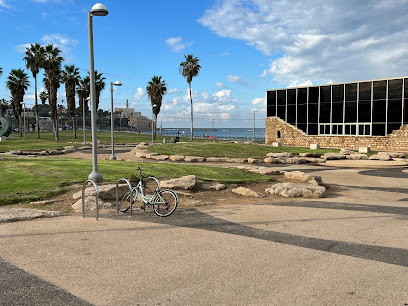
Independence Hall (Dizengoff House)
Discover the historic Independence Hall in Tel Aviv, where Israel's independence was proclaimed, and immerse yourself in the nation's rich heritage.
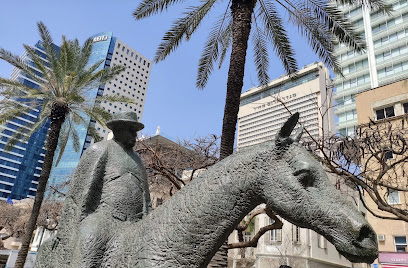
Abrasha Park
Experience the tranquility of Abrasha Park, a stunning urban park in Tel Aviv, offering breathtaking sea views and artistic charm in a serene setting.
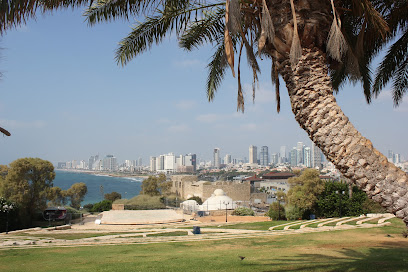
Ben-Gurion House
Explore Ben-Gurion House in Tel Aviv, a historical museum dedicated to Israel's first Prime Minister, David Ben-Gurion's life and legacy.
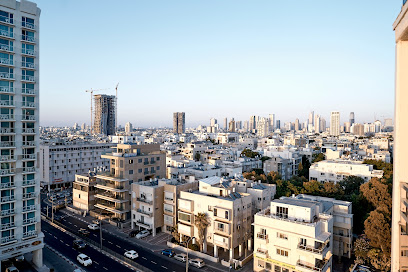
Tel Aviv Promenade
Experience the beauty and energy of the Tel Aviv Promenade, where stunning coastal views, vibrant culture, and delicious dining await you.
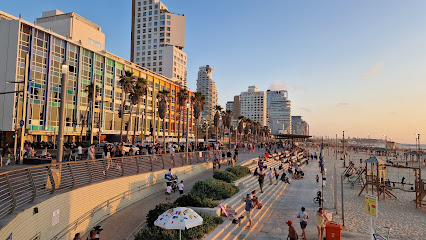
גרפיטיול Grafitiyul
Discover the artistic heartbeat of Tel Aviv with Grafitiyul's street art tours and workshops, celebrating urban creativity and culture.
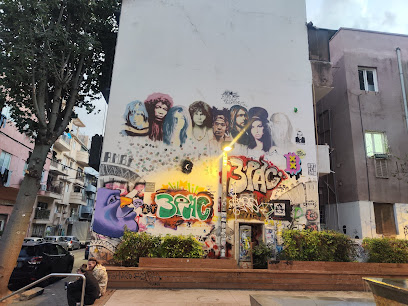
Unmissable attractions to see
Yarkon Park
Discover the tranquility and vibrant beauty of Yarkon Park, a lush green haven in the heart of Tel Aviv-Yafo, perfect for relaxation and recreation.
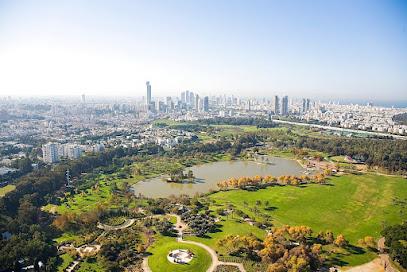
Jaffa Flea Market
Discover the eclectic charm of Jaffa Flea Market, a vibrant hub of antiques, crafts, and local flavors in the heart of Tel Aviv-Yafo.
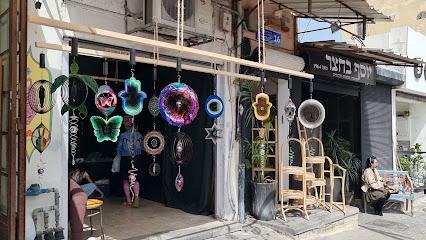
The Clock Tower
Discover the timeless beauty of Tel Aviv's Clock Tower, a historical landmark that tells the city's rich story and captures its vibrant spirit.
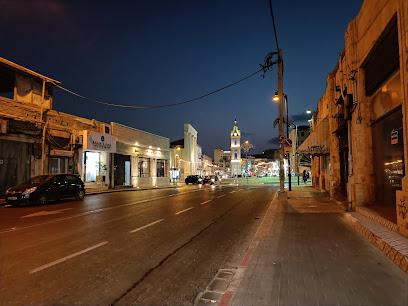
Tel Aviv Museum of Art
Explore the Golda Meir Cultural and Art Center in Tel Aviv, a hub of creativity showcasing modern and contemporary art from Israel and beyond.
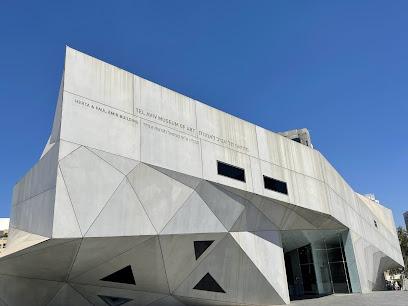
Park HaTachana
Experience the vibrant culture and history at Park HaTachana, a must-visit landmark in Tel Aviv-Yafo with shops, cafes, and events.
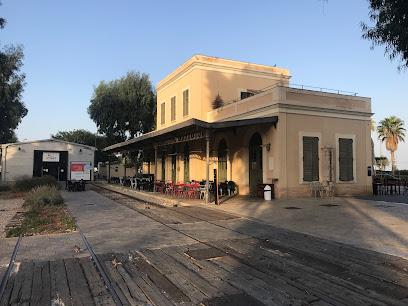
Levinski Market
Explore Levinski Market in Tel Aviv for an unforgettable experience of flavors, culture, and community amidst a thriving marketplace atmosphere.
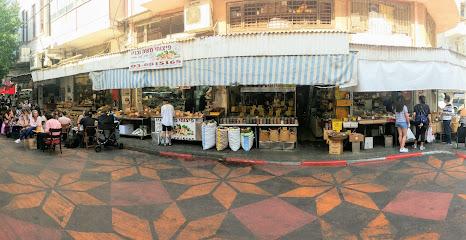
Luna Park
Experience the thrill of Luna Park in Tel Aviv, a top amusement destination featuring exciting rides, games, and family-friendly attractions for everyone.
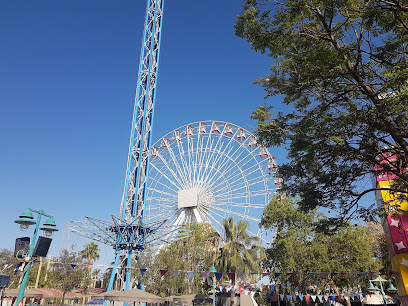
HaBima Square
Explore HaBima Square in Tel Aviv, a vibrant cultural hub with gardens, performances, and local events, perfect for every tourist's itinerary.
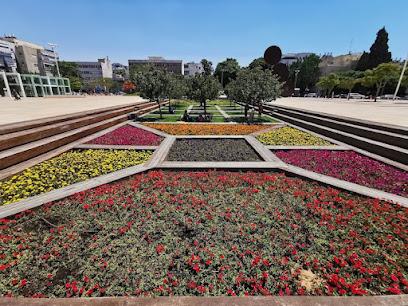
Tel Aviv Port
Explore the lively Tel Aviv Port, a cultural hotspot offering dining, shopping, and stunning Mediterranean views in Israel's vibrant coastal city.
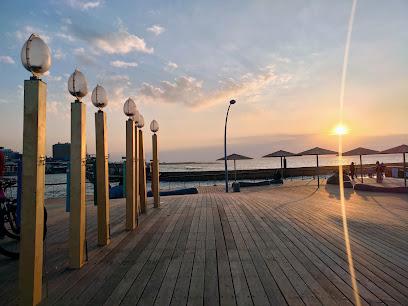
ANU Museum of the Jewish People
Discover the profound narrative of Jewish culture at the ANU Museum of the Jewish People in Tel Aviv, a must-visit destination for history and art lovers.
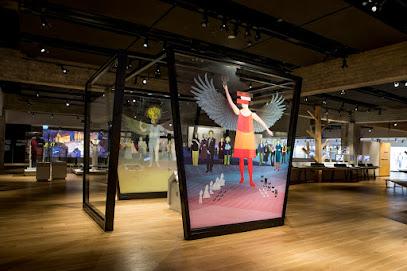
Apollonia National Park
Explore Apollonia National Park in Herzliya: A perfect blend of historical ruins, scenic hiking trails, and breathtaking Mediterranean views.
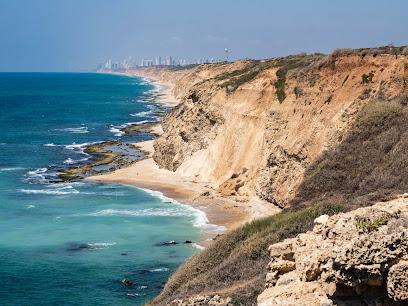
Midron Yaffo Park
Experience the tranquility of Midron Yaffo Park, a stunning urban oasis with breathtaking views, outdoor activities, and a vibrant atmosphere in Tel Aviv-Yafo.
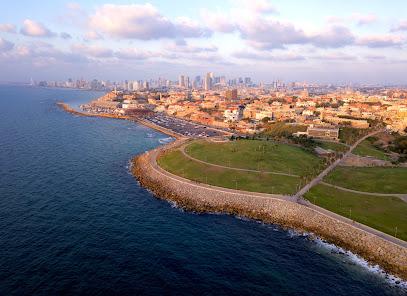
Eretz Israel Museum
Discover the rich history and culture of Israel at Eretz Israel Museum, a must-visit destination in Tel Aviv-Yafo showcasing archaeology and ethnography.
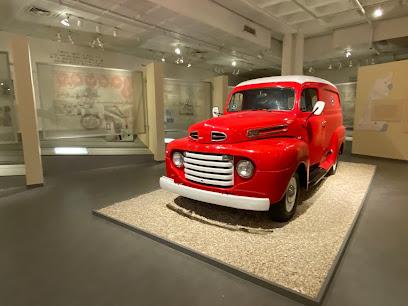
Bezalel Market
Discover the vibrant Bezalel Market in Tel Aviv, a hub of culinary delights and artistic treasures perfect for every tourist's adventure.
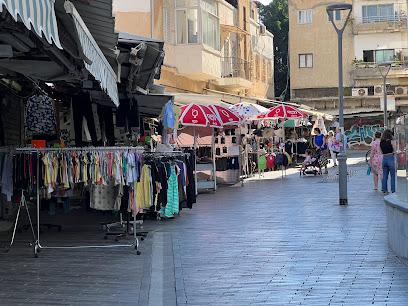
Kikar Dizengoff
Discover the vibrant Kikar Dizengoff, a lively square in Tel Aviv filled with shops, cafes, and cultural events that reflect the city's unique spirit.
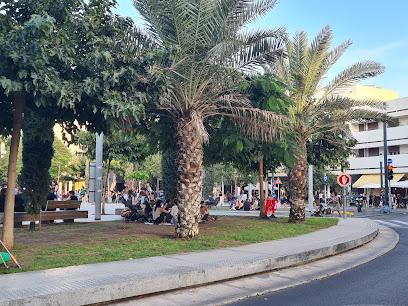
Essential places to dine
בית תאילנדי - מסעדה תאילנדית
Experience authentic Thai flavors at בית תאילנדי in Tel Aviv – where tradition meets taste in a vibrant setting.
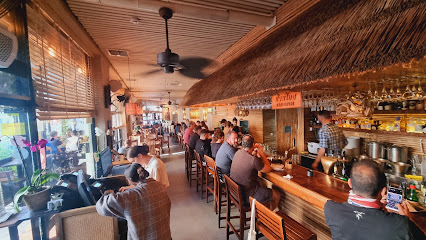
Amore Mio
Savor authentic Italian cuisine at Amore Mio in Tel Aviv – home of exquisite pizzas and delightful pastas.
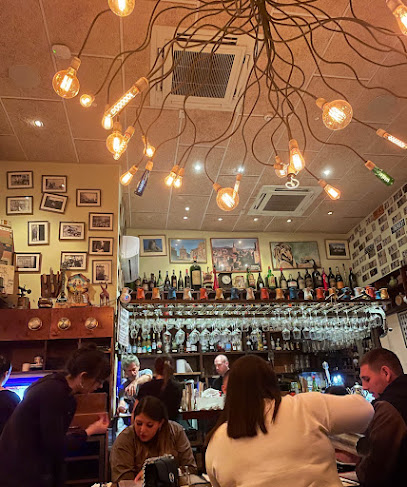
Taizu
Discover the exquisite flavors of Asia at Taizu, an upscale restaurant in Tel Aviv known for its innovative dishes and elegant ambiance.
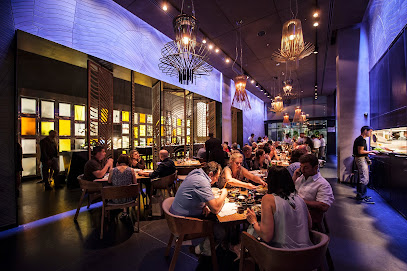
claro;
Experience exquisite Mediterranean dining at Claro in Tel Aviv – where fresh ingredients meet innovative culinary artistry.
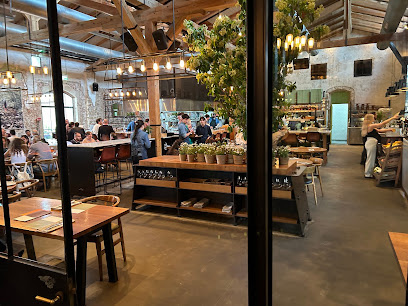
האחים
Experience authentic Middle Eastern flavors at האחים in Tel Aviv - a must-visit culinary gem celebrating Israeli cuisine.
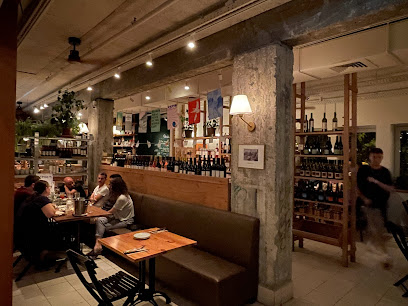
Mashya
Discover culinary artistry at Mashya in Tel Aviv—where innovative dishes meet fresh local ingredients for an unforgettable fine dining experience.
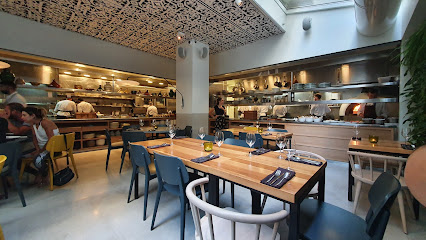
Baba Yaga
Experience exquisite Eastern European fusion cuisine at Baba Yaga in Tel Aviv – where tradition meets modern culinary artistry.
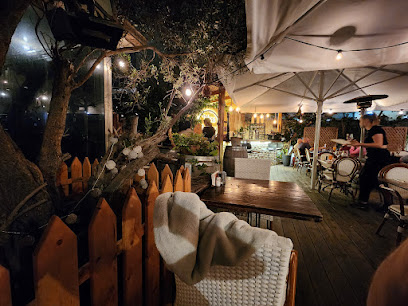
Porter & Sons
Discover the perfect blend of culinary artistry and vibrant nightlife at Porter & Sons in Tel Aviv-Yafo.
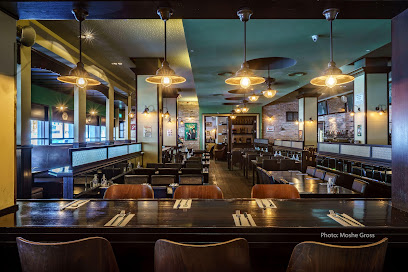
Goocha Dizengoff
Discover Goocha Dizengoff: A premier destination for fresh seafood and vibrant dining in Tel Aviv.
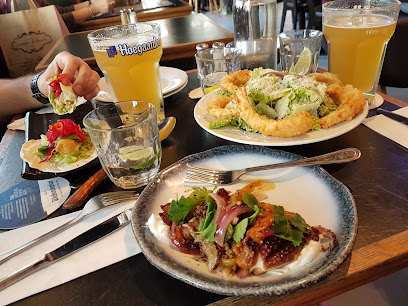
Blue Rooster
Experience culinary artistry at the Blue Rooster in Tel Aviv-Yafo, where exceptional flavors meet inviting ambiance for an unforgettable dining journey.
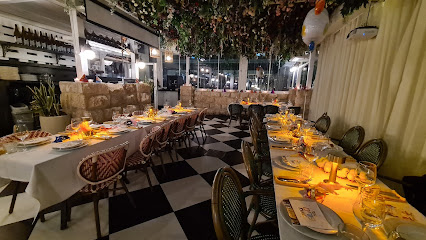
Port Sa'id
Discover Port Sa'id: A Culinary Gem in Tel Aviv-Yafo Blending Flavorful Dishes with Lively Music.
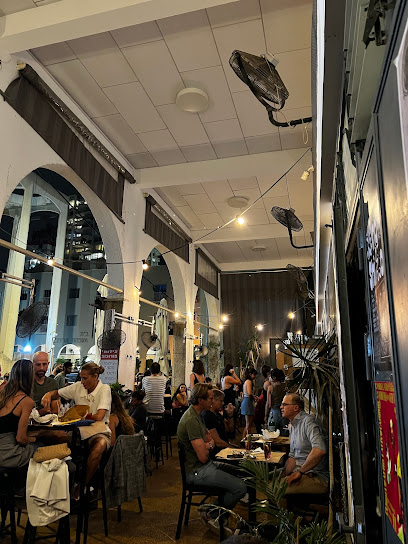
Meshek Barzilay
Discover Meshek Barzilay: A delightful vegan restaurant in Tel Aviv offering innovative dishes made from fresh local ingredients.
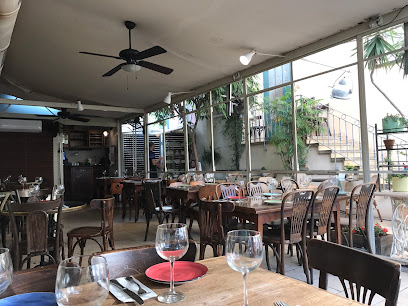
Shila
Experience culinary excellence at Shila, where fresh seafood meets fine dining in the heart of Tel Aviv's vibrant atmosphere.
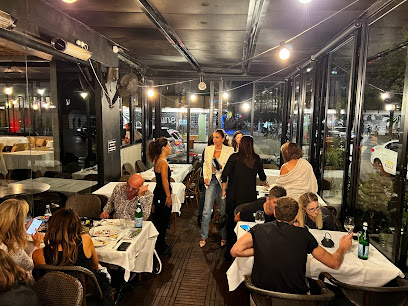
Yaffo Tel Aviv
Experience culinary excellence at Yaffo Tel Aviv – where Mediterranean flavors meet fine dining elegance.
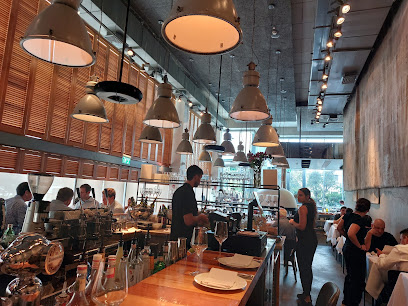
Onza
Discover Onza: A vibrant restaurant in Tel Aviv serving innovative dishes and unique cocktails amidst a cozy ambiance.
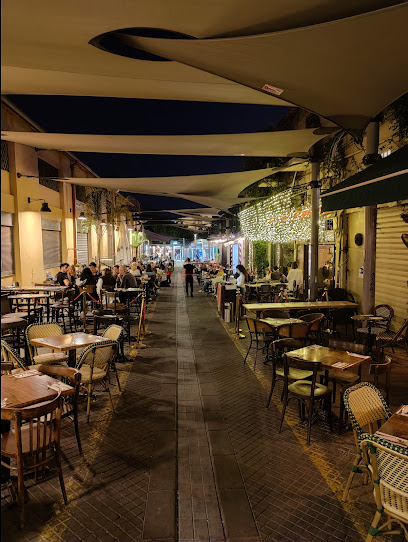
Markets, malls and hidden boutiques
Flashback vintage store
Explore unique vintage clothing treasures at Flashback Vintage Store in Tel Aviv, where fashion meets nostalgia in a charming shopping experience.
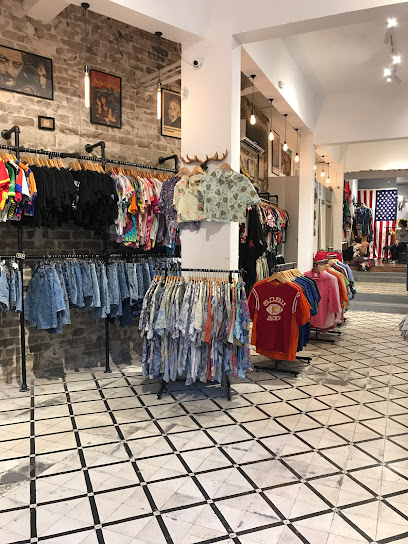
Seekers - Vintage Clothing TLV
Discover unique vintage treasures at Seekers Vintage Clothing TLV, a stylish consignment shop in the heart of Tel Aviv-Yafo.
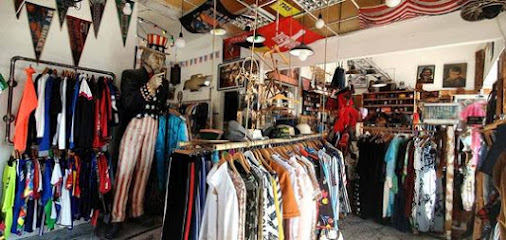
Dressed by Danielle
Explore a unique collection of vintage clothing and accessories at Dressed by Danielle in Tel Aviv, where sustainability meets style.
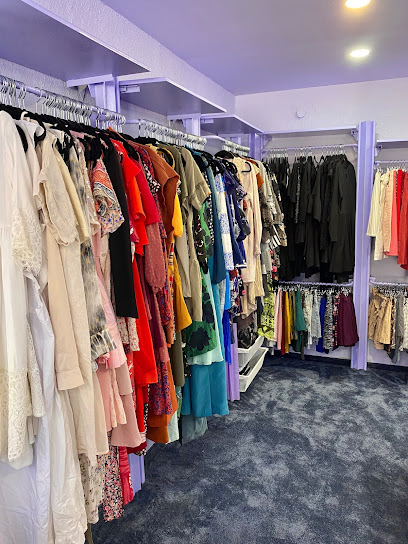
ClickShop קליקשופ
Explore ClickShop in Tel Aviv for unique gifts and souvenirs that capture the spirit of Israel, perfect for every traveler.
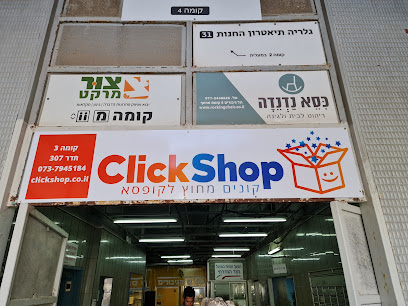
Shoppu
Explore Shoppu, the charming gift shop in Tel Aviv, offering unique home goods and stationery that capture the spirit of the city.
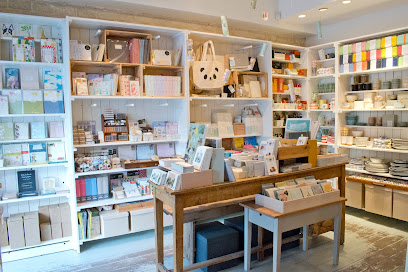
Belle & Sue
Discover the latest in Israeli fashion at Belle & Sue, a trendy clothing boutique in the heart of Tel Aviv, perfect for every style enthusiast.
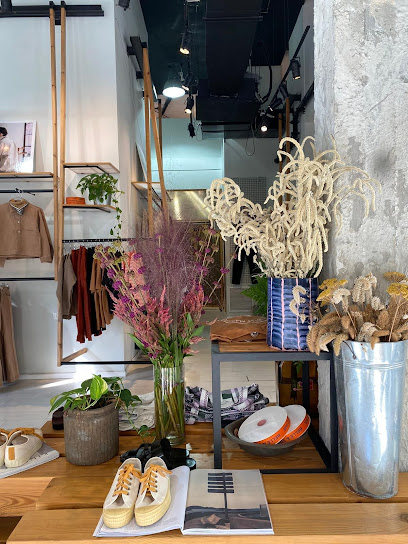
Comme il Faut
Discover unique fashion at Comme il Faut, a stylish clothing store in Tel Aviv offering eclectic designs that reflect the city's vibrant culture.
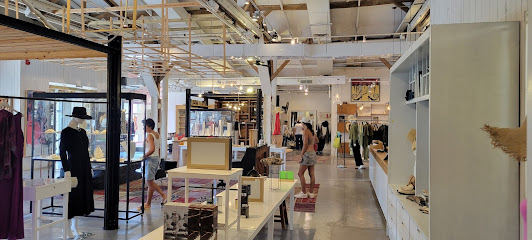
Watch Show Rolex Boutique Tel Aviv
Explore the luxurious world of Rolex at Watch Show Boutique in Tel Aviv, where exquisite craftsmanship meets timeless elegance.
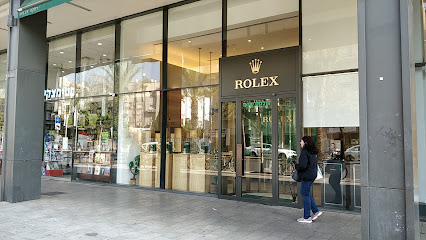
Loni Vintage לוני וינטאג
Explore Loni Vintage in Tel Aviv-Yafo for unique vintage clothing, bags, hats, jewelry, and shoes that tell a story.
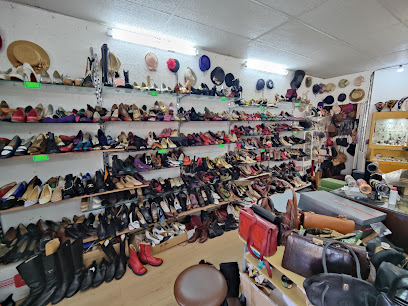
Hilweh Market
Explore Hilweh Market, a vibrant gift shop in Tel Aviv, showcasing local handicrafts, jewelry, and unique souvenirs reflecting Israeli culture.
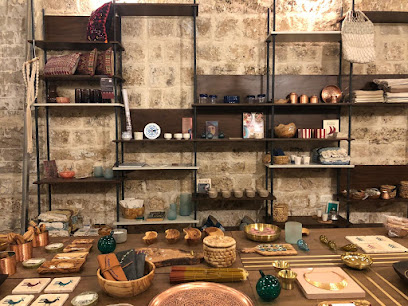
NOOK
Explore NOOK in Tel Aviv-Yafo, a charming novelty store offering unique gifts, chic apparel, and exquisite chinaware that define local craftsmanship.
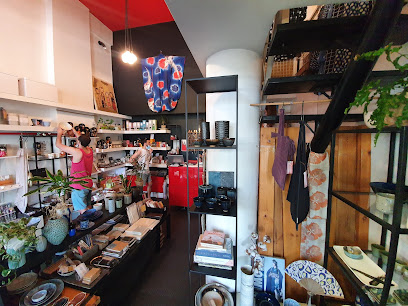
THRIFT TLV - VINTAGE CLOTHING
Explore a treasure trove of vintage clothing and accessories at THRIFT TLV, where sustainable fashion meets timeless style in the heart of Tel Aviv.
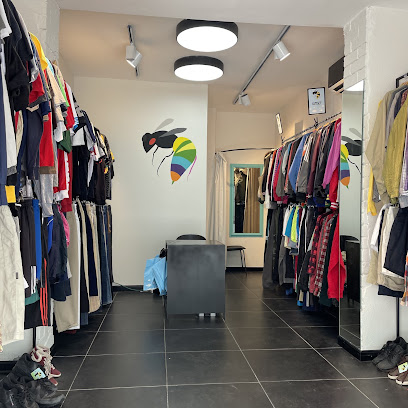
TheStreetLamp - Gifts from Tel Aviv & Jerusalem
Explore TheStreetLamp in Tel Aviv for unique gifts and souvenirs that reflect the rich culture of Israel, perfect for any occasion.
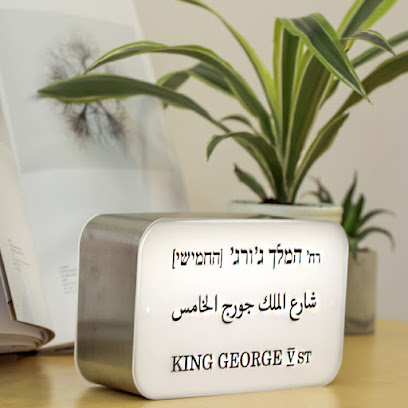
Love Me Two Times
Explore Love Me Two Times in Tel Aviv-Yafo for unique vintage treasures and second-hand clothing that tell a captivating story.
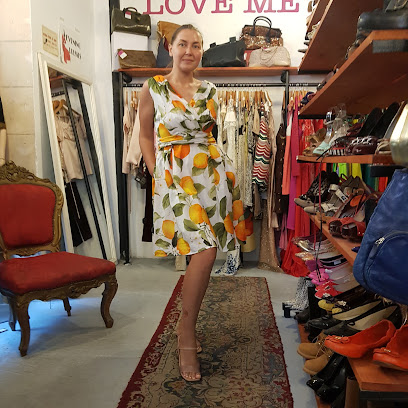
ALTER I NATIVE I SOUVENIR
Explore ALTER I NATIVE I SOUVENIR in Tel Aviv-Yafo for unique, locally-crafted treasures that embody the spirit of Israeli culture.
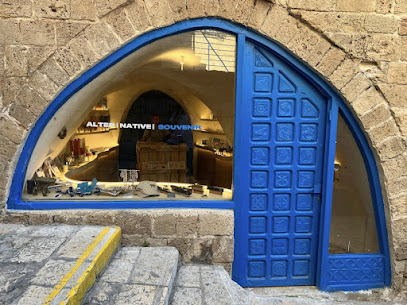
Essential bars & hidden hideouts
Bellboy
Discover the elegance of Bellboy Cocktail Bar in Tel Aviv, where innovative cocktails meet sophisticated nightlife.
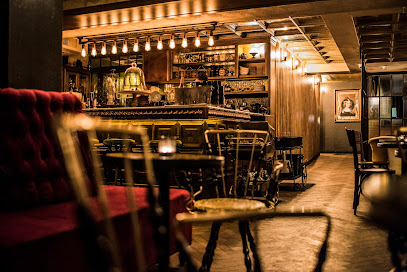
The Prince - הנסיך
Experience the vibrant nightlife at The Prince, Tel Aviv's trendy bar and restaurant offering delicious food and creative cocktails in a lively atmosphere.
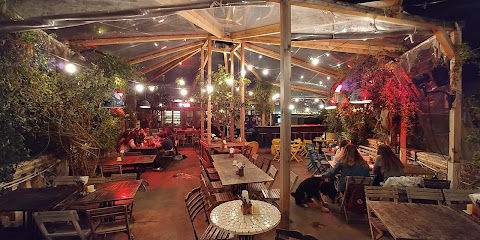
Sputnik bar
Experience the energy of Tel Aviv's nightlife at Sputnik Bar, where vibrant cocktails and a lively atmosphere await every night.
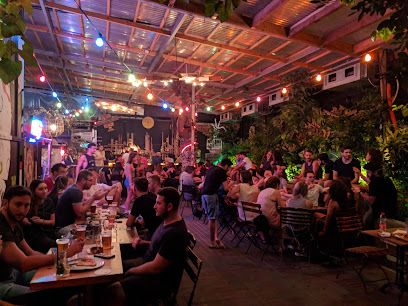
Imperial Cocktail Bar
Experience the vibrant nightlife of Tel Aviv at Imperial Cocktail Bar, where innovative cocktails and stylish ambiance create unforgettable moments.
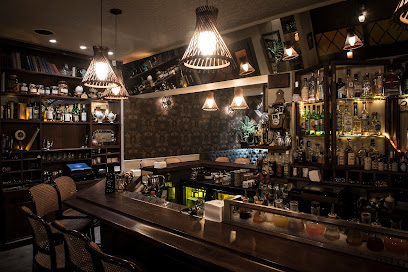
Dizzy Frishdon
Experience vibrant nightlife at Dizzy Frishdon, where delicious fast food meets energetic dancing in the heart of Tel Aviv.
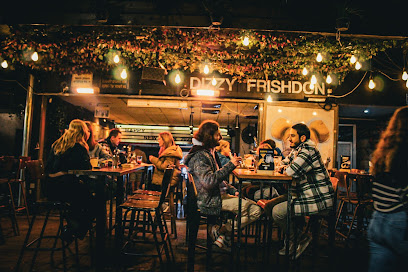
223 Bar
Experience the vibrant nightlife of Tel Aviv at 223 Bar, where expertly crafted cocktails and a lively atmosphere await you.
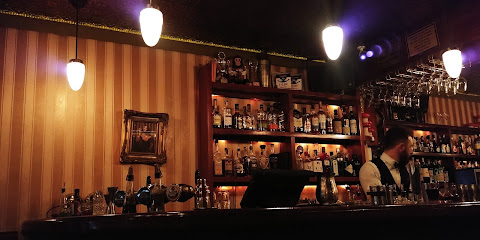
Speakeasy
Discover the vibrant nightlife of Tel Aviv at Speakeasy, a stylish bar offering handcrafted cocktails and a lively atmosphere on Rothschild Boulevard.
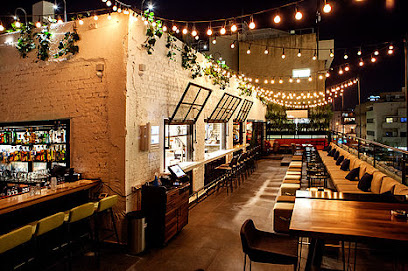
Voodoo bar
Discover the vibrant nightlife at Voodoo Bar in Tel Aviv, where innovative cocktails and live music create an unforgettable experience.
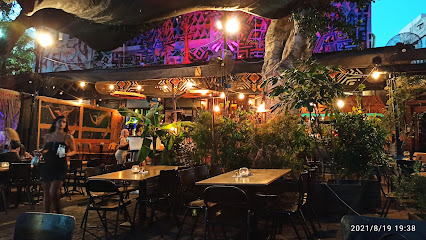
Kuli Alma
Discover Kuli Alma, a vibrant bar in Tel Aviv blending art, music, and nightlife for an unforgettable cultural experience.
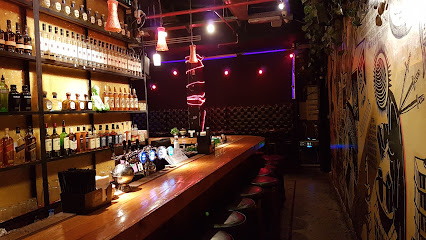
Potion Bar בר וויסקי בתל אביב
Experience the vibrant nightlife of Tel Aviv at Potion Bar, where creative cocktails and a lively atmosphere come together for an unforgettable evening.
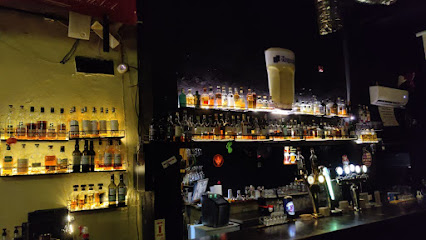
Denim Drinks First
Discover the vibrant nightlife of Tel Aviv at Denim Drinks First, where creative cocktails and a chic atmosphere await.
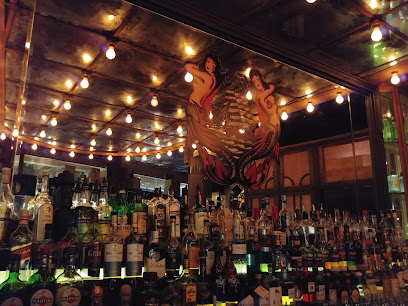
A La Bar
Discover the lively spirit of Tel Aviv at A La Bar, where culinary delights meet an unforgettable nightlife experience.
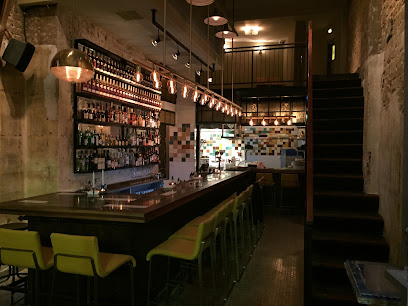
Norman Bar
Experience the vibrant nightlife of Tel Aviv at Norman Bar, where great drinks, delicious food, and lively atmosphere await every visitor.
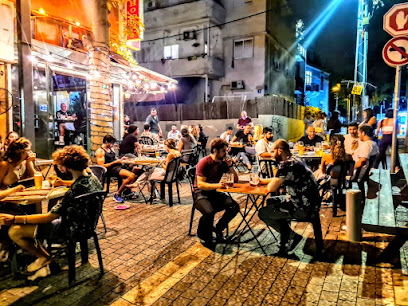
Queen Tel Aviv
Discover the vibrant nightlife at Queen Tel Aviv, where eclectic vibes meet creative cocktails in the heart of Tel Aviv.
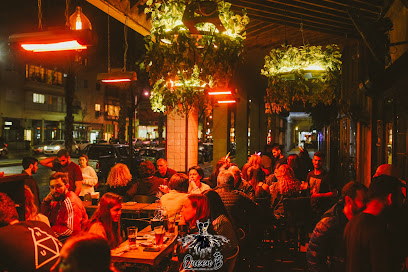
Local Phrases
-
- Helloשָׁלוֹם
[Shalom] - Goodbyeלְהִתְרָאוֹת
[Lehitraot] - Yesכֵּן
[Ken] - Noלֹא
[Lo] - Please/You're welcomeבבקשה
[Bevakasha] - Thank youתּוֹדָה
[Toda] - Excuse me/Sorryסְלִיחָה
[Slicha] - How are you?איך אתה?
[Eich Ata?] - Fine. And you?טוב. ואת?
[Tov. Ve'at?] - Do you speak English?אתה מדבר אנגלית?
[Ata Medaber Anglit?] - I don't understandאני לא מבין
[Ani Lo Mevin]
- Helloשָׁלוֹם
-
- I'd like to see the menu, pleaseאשמח לראות את התפריט, בבקשה
[Eshmech lirot et hataprit, bevakasha] - I don't eat meatאני לא אוכל בשר
[Ani Lo Ochel Basar] - Cheers!לחיים!
[Lechaim!] - I would like to pay, pleaseאשמח לשלם, בבקשה
[Eshmech lisholm, bevakasha]
- I'd like to see the menu, pleaseאשמח לראות את התפריט, בבקשה
-
- Help!עזור!
[Ezor!] - Go away!לך לעבור!
[Lech leavor!] - Call the Police!תתקשר למשטרה!
[Titkasher lameshara!] - Call a doctor!תתקשר לרופא!
[Titkasher laroef!] - I'm lostאני אבוד
[Ani avud] - I'm illאני חולה
[Ani holeh]
- Help!עזור!
-
- I'd like to buy...אשמח לקנות...
[Eshmech liknot...] - I'm just lookingרק נראה לי
[Rak nireh li] - How much is it?כמה זה עולה?
[Kama ze ole?] - That's too expensiveזה יקר מדי
[Ze yakar madi] - Can you lower the price?אתה יכול להוריד את המחיר?
[Ata yachol lehorid et hamachir?]
- I'd like to buy...אשמח לקנות...
-
- What time is it?מה השעה?
[Ma hashaa?] - It's one o'clockהשעה אחת
[Hashaa achat] - Half past (10)חצי לעשר
[Chatzi laeser] - Morningבוקר
[Boker] - Afternoonצהריים
[Tzohorayim] - Eveningערב
[Erev] - Yesterdayאתמול
[Etmol] - Todayהיום
[Hayom] - Tomorrowמחר
[Mahar] - 1אחד
[Echad] - 2שניים
[Shnayim] - 3שלושה
[Shlosha] - 4ארבעה
[Arbaa] - 5חמישה
[Chamesha] - 6שישה
[Shisha] - 7שבעה
[Sheva] - 8שמונה
[Shmoneh] - 9תשעה
[Tishah] - 10עשרה
[Eser]
- What time is it?מה השעה?
-
- Where's a/the...?איפה יש...
[Eifo yesh...] - What's the address?מה הכתובת?
[Ma hakatovet?] - Can you show me (on the map)?אתה יכול להראות לי (על המפה)?
[Ata yachol leharot li (al hamapa)?] - When's the next (bus)?מתי האוטובוס הבא?
[Matai haotobus haba?] - A ticket (to ....)כרטיס (ל...)
[Kartis (le...)]
- Where's a/the...?איפה יש...
History of Tel Aviv
-
In 1909, Tel Aviv was founded by a group of Jewish families on the sand dunes north of the ancient port city of Jaffa. Originally called 'Ahuzat Bayit,' the neighborhood was renamed Tel Aviv, which means 'Hill of Spring,' symbolizing renewal and a fresh start. This marked the beginning of the first modern Hebrew city in the world.
-
During the 1930s, Tel Aviv experienced a surge in population due to Jewish immigration from Europe. This period saw the construction of over 4,000 buildings in the Bauhaus or International Style, earning the city the nickname 'The White City.' These buildings were designed by German Jewish architects who fled the rise of the Nazis. In 2003, the White City was designated a UNESCO World Heritage Site.
-
On May 14, 1948, in a small house on Rothschild Boulevard, David Ben-Gurion declared the establishment of the State of Israel. This watershed moment in Jewish history took place in Tel Aviv and marked the end of the British Mandate in Palestine. The declaration was a pivotal event that led to the 1948 Arab-Israeli War.
-
During the Yom Kippur War in 1973, Tel Aviv was on high alert as the conflict raged between Israel and a coalition of Arab states led by Egypt and Syria. The war had a profound impact on the city's residents, with many being called up for military service and the city under the constant threat of attack.
-
On November 4, 1995, Prime Minister Yitzhak Rabin was assassinated in Tel Aviv's Kings of Israel Square (now Rabin Square) after a peace rally. The assassination was carried out by a Jewish extremist opposed to Rabin's peace efforts with the Palestinians. This tragic event shocked the nation and had lasting implications for the Israeli-Palestinian peace process.
-
Tel Aviv is renowned for its vibrant cultural scene, which includes a plethora of theaters, art galleries, and music venues. The city is home to the Suzanne Dellal Center for Dance and Theatre, the Tel Aviv Museum of Art, and the Israel Philharmonic Orchestra. Its cultural dynamism has cemented Tel Aviv's status as the cultural capital of Israel.
-
Tel Aviv is celebrated for its progressive stance on LGBTQ+ rights and hosts one of the world's most prominent Gay Pride parades. This event attracts tens of thousands of participants from around the globe each year, reflecting the city's reputation as a safe and inclusive environment for the LGBTQ+ community.
-
In recent decades, Tel Aviv has earned the nickname 'Silicon Wadi' due to its thriving tech industry. The city is at the heart of Israel's startup ecosystem, boasting numerous tech companies, incubators, and venture capital firms. This tech boom has had a significant impact on the local economy and global innovation.
Tel Aviv Essentials
-
Tel Aviv is served by Ben Gurion International Airport (TLV), which is about 20 kilometers southeast of the city center. The airport is well-connected to major cities around the world. From the airport, you can take a taxi, train, or bus to reach different parts of Tel Aviv. The train ride to the city center takes about 20 minutes, while taxis and shuttle services offer more direct routes.
-
Tel Aviv has an efficient public transportation system, including buses, trains, and shared taxis known as 'sheruts'. The city is also very bike-friendly with bike-sharing services like Tel-O-Fun available. For short distances, walking is often the best option. If you prefer driving, car rentals are widely available, but be mindful of traffic and parking restrictions.
-
The official currency in Israel is the Israeli Shekel (ILS). Credit and debit cards are widely accepted in most establishments, including hotels, restaurants, and shops. ATMs are plentiful throughout the city, and many of them offer the option to withdraw cash in multiple currencies.
-
Tel Aviv is generally safe for tourists, but like any major city, it has areas where you should exercise caution. Avoid the southern neighborhoods of Neve Sha'anan and parts of the Central Bus Station area at night, as these areas have higher crime rates targeting tourists. Always keep an eye on your belongings in crowded places and be cautious of pickpockets.
-
In case of emergency, dial 100 for police, 101 for medical emergencies, and 102 for fire services. Most emergency operators speak English. It is advisable to have travel insurance that covers medical emergencies. For minor health issues, pharmacies are available throughout the city and many are open 24/7.
-
Fashion: Do dress modestly when visiting religious sites; casual wear is acceptable in most other places. Religion: Do respect the Sabbath from Friday sunset to Saturday sunset, when many businesses close. Public Transport: Do validate your ticket when boarding buses or trains. Don’t eat or drink on public transport. Greetings: Do greet people with a smile and a handshake. Eating & Drinking: Do try local delicacies like hummus and falafel. Don't refuse offers of hospitality, as it is considered impolite.
-
To experience Tel Aviv like a local, visit the Carmel Market for fresh produce and local goods. Enjoy the city's beaches and take a walk or bike ride along the Tayelet promenade. Explore the neighborhoods of Neve Tzedek and Florentin for their unique architecture and vibrant street art. Don't miss the nightlife in Rothschild Boulevard and the Port of Tel Aviv.
Nearby Cities to Tel Aviv
-
Things To Do in Ramat Gan
-
Things To Do in Jaffa
-
Things To Do in Herzliya
-
Things To Do in Hod Hasharon
-
Things To Do in Holon
-
Things To Do in Ra'anana
-
Things To Do in Raanana
-
Things To Do in Kfar Saba
-
Things To Do in Netanya
-
Things To Do in Modi'in
-
Things To Do in Ashdod
-
Things To Do in Hadera
-
Things To Do in Caesarea
-
Things To Do in Zikhron Ya'akov
-
Things To Do in Jerusalem



















